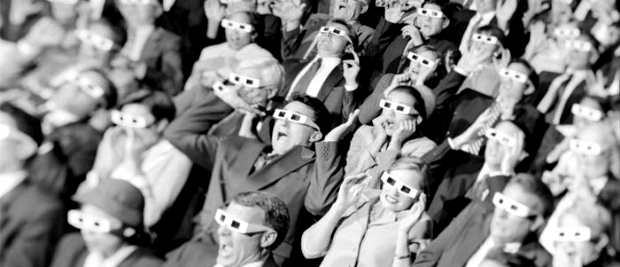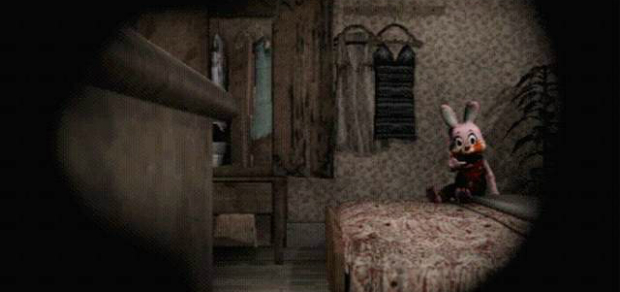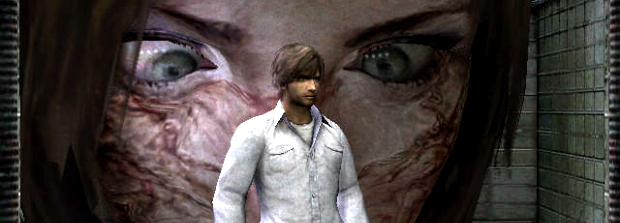Your login information returned multiple users. Please select the user you would like to log in as and re-type in your password.

A while ago I read an article by our very own Brad Simons discussing how 80% of gamers who played Mass Effect 2 chose to be the male Commander Shepard instead of the female. He shared his disapproval for this statistic and wrote, “80% of you made the wrong choice, because the female Shepard is by far the better character. Why? Because Jenifer Hale did a much better job with the voice acting.” Personally, I couldn’t agree more. If you watch the videos he uses to compare the voice actors, Hale is more invested in her character’s line delivery compared to Mark Meer whose stiff tone is forced and awkward.
What caught my attention however was the comments posted in response to his post. Many agreed that while Hale’s voice acting is better suited for the Commander, they still chose mShep because, as some posted, there was a connection to simply being male. For others, being mShep meant the ability to have a romantic relationship with female NPC’s and they preferred a heteronormative approach. I was intrigued by these responses because it suggests that as gamers we have an urge to mirror ourselves with the characters we play. We shift from watching cinematic cutscenes to actively participating as the protagonist and immerse ourselves in a digital world and the choices we make in it.
The relationship between a game and its player can be likened to the relationship between a film and its spectator. Spectatorship theory is thoroughly studied in Film Studies to address a psychoanalytical relationship between a spectator and the objects on a screen, also known as the spectator’s “gaze.” When speaking about the gaze, we delve into the psychology of Sigmud Freud and Jacques Lacan, and a femininized reading from theorist Laura Mulvey. I would just like to add here that I’m providing a very brief definition of spectatorship theory and the gaze to simply give a basis for the rest of my post.

There is indeed a scopophilic aspect to video games. Gamers enjoy watching cutscenes, respect well done graphics, and are amazed by the realistic art with increasing technological improvements. What’s important is venturing beyond the look – or the gaze – of gamers and fleshing out what this means to them as they are playing. I would argue that a psychological relationship is created with every game we play. In some games, we become voyeurs and the gaze is then eroticized. We are given opportunities to watch dancers sway suggestively and have sexual affairs in the Mass Effect franchise to name one example.
One of the most prominent games that examines voyeurism is Silent Hill 4: The Room. We follow Henry Townsend as he attempts to escape his imprisoned apartment through a portal that leads to a supernatural “Otherworld”, a common nightmarish place in the Silent Hill franchise. He discovers there is a serial killer on the loose and that his next victim is Henry’s neighbour Eileen Gavin. Concerned for her safety and unable to leave his apartment, he is able to watch Eileen through a hole in his wall. Henry, and the player controlling him, becomes a Peeping Tom. We watch Eileen sleep, clean, and talk to her friends on the phone. Throughout each scene we see the always adorable and not at all creepy Robbie the Rabbit plush toy sitting on her bed. In the final peek, Eileen is gone from her bedroom but Robbie is now turned toward you. He is staring at you - and pointing at you.

Not only did this moment horrify me, but it took me by surprise when Robbie knew I was looking. I was caught. I truly felt like a Peeping Tom in that moment and the game wanted me to acknowledge my voyeurism. It reminds you again that you’re a perverted fuck later when Henry enters a room in the Otherworld greeted by heavy sexual breathing and, oh yes, a giant scary Eileen face with twitchy eyeballs staring at you.

This is all a direct reaction to me, the player controlling Henry, gazing at Eileen. What is memorable in this moment is the connection that I had developed with Henry by that point in the game. Even though it was him looking through the hole to watch Eileen’s every move, I was the one who felt uncomfortable when Robbie caught me. The fourth wall broke and Robbie identified me as the spying camera. Film theorist Christian Metz wrote in The Imaginary Signifier that the spectator’s identification with the camera creates the all-powerful position of a God. We as gamers have an undeniable God complex because we hold the power when we are playing games. We become the camera directing our own vision to guide our protagonist through narratives and combat scenarios. This authority creates a deep connection with the character we control, and is most apparent in RPG’s where we are able to customize almost any aspect of ourselves.
Think about a time you were describing an instant of a game with your friends. “So in Infamous, I had to choose between facing riot police myself, or starting a riot in a crowd which would result in casualties .” It’s unlikely you would say, “So Cole had to choose between facing riot police himself…” because you are Cole. If Infamous was a film, then indeed you would state it the second way. But in games, we are immersed in our characters and we relate to them which I find humorous. How could I possibly relate to Joseph Turok, a giant, manly-man Native American living on a planet and slitting raptors’ throats with a machete? I mean, really. If I wanted to relate to a video game, I would play a game where the protagonist worked 9-5, came home and made dinner followed by drinking a bottle of wine and passing out in bed. But NAY! I am Joseph Turok. I am Lara Croft. I am Bayonetta. The relationship I develop with these characters is similar but not identical to the relationship between a film and its spectator, but I would argue it’s certainly just as complex.
Were there any moments you had when you felt that deep connection with a protagonist? Do you think you reflect yourself upon a video game?




Comments
13 years ago
I guess an obvious character from a game that I recently finished, would be Lee Everett from Telltale's The Walking Dead game. I thought there was a strong connection between the character and the choices you made, for obvious reasons I suppose. But when he fell or was forced to make those difficult choices, I could feel the tension and anxiety he was going through.
13 years ago
I think it depends on the game for me. For example, in RDR I don't connect myself with John Marston. I kinda see it as third person, even as I'm controlling his every move. John Marston is the bad-ass, I'm just some dude perusing his adventures. Maybe it's the cut scenes that distance me. However, in a game like Amnesia, I am Daniel. I fear his fears - I'm trying to put together the pieces just the same as him.
13 years ago
Fantastic article.
13 years ago
Very well done article and I agree that I definitely do feel a connection to the characters I play in certain games (fable, infamous, mass effect etc) although I believe I'm more apparent to this when I either play a silent protagonist (half life) or a character I shape throughout the game (walking dead video game).
13 years ago
Fantastic article. I'm a huge fan of film analysis and I've had this exact conversation with many of my friends. I think video games are the most intimate form of media. You connect with them on so many different levels. I can't think of anything else that has the same effect. Strangely enough, the characters I connect with the most are those I have little in common with. I'm not sure if others feel the same way, but I think it's a lot more fun to adopt the persona of a character who is nothing like me.
13 years ago
"Film theorist Christian Metz wrote in The Imaginary Signifier that the spectator’s identification with the camera creates the all-powerful position of a God. We as gamers have an undeniable God complex because we hold the power when we are playing games. We become the camera directing our own vision to guide our protagonist through narratives and combat scenarios. This authority creates a deep connection with the character we control, and is most apparent in RPG’s where we are able to customize almost any aspect of ourselves." This is very true!
Also I loved how you pointed out as we speak about decisions we make while playing games and describing them to someone else...I never realized I do that. For me, that game was Heavy Rain. The game makes you question what would you do to save your son. As a parent I could totally relate to Ethan, and playing that game I did not hesitate (whether cutting off a finger, committing a murder, and even drinking a poison.) I never felt more immersed in a game than at that moment.
Great article :)
13 years ago
For me it has to do with how much of the character I get to create. In a joke playthrough of Mass Effect 2 I was uncomfortable killing off the characters in my game and wasn't able to go through with it having already become invested in them through my Shepard. This would not have been the case had Shepard just been a guy/girl I was playing as in that universe. I've ran into similar instances where in say GTA 4 or Infamous when people die I've been "close" to the entire game I kind of shrug it off. I know that had I been involve in making the protagonist I'd have very different feelings if the situation played out exactly the same.
13 years ago
First of all let me say that this article is fantastic. I don't think I've read an article that peeked my interest and got me thinking about the way video games affect us in quite some time.
I think one game that really sucked people into the characters and got them investing in them so heavily was the first Left 4 Dead game. Oddly enough when I play other FPS games (Half Life, CoD, Halo or whatever else) I've always felt that I was looking through the eyes of someone else. That what was happening wasn't happening directly to me but to the person who's body I was inhabiting. With L4D though it was different. Everything that happens in that game feels like it is directly happening to the player regardless of their chosen character. In fact the "story" or "lore" of that world hinges on players telling their experiences to other players and that meta idea of turning your water cooler talks into a real life equivalent of the scribblings on the safe room walls hinges on players bypassing their avatars and taking things personally.
One of the biggest qualms when L4D2 was announced was that the characters were worse. Which brings up the question was the issue really with the characters or had people become so personally invested in the world of the first that readjusting to the second was something so many were unwilling to do? Regardless of that tough I don't think that ended up being as big of a issue as it was made out to be.
I really like the idea of more devs exploring the idea of spectatorship in their games. I believe their was a question on the recent podcast that asked "which games have made you cry/tear up" or something to that effect. I find it interesting that a lot of the games people list when answering this question are also games that a lot of people describe as being like movies or at the very least providing a cinematic experience. We may nt have a triple A title that experiments with the ideas of spectatorship and personal investment in a game, but I really hope we get some indie devs who are willing to play with the idea.
Again, fantastic article.
13 years ago
I absolutely love this article! I also love the new female writers here at 4player. Great job!